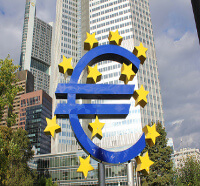 The European Payments Service Directive II (PSD2), in force since January 2018, is currently stirring debate among Member States regarding the process of its implementation. The Directive is designed to harmonize and simplify money transfers inside the EU, decrease fraud in online payments, and inform consumers about the rights and obligations.
The European Payments Service Directive II (PSD2), in force since January 2018, is currently stirring debate among Member States regarding the process of its implementation. The Directive is designed to harmonize and simplify money transfers inside the EU, decrease fraud in online payments, and inform consumers about the rights and obligations.
The revised PSD2 extends several obligations concerning data protection and information to and from international payments. It mandates stronger security requirements for online transactions and obliges providers to request customer authentication and demands they register. While the PSD2 compliance date was set for September 2019, the European Banking Authority unconditionally extended the implementation period in order to allow for full application of the new requirements. Nevertheless, a fixed common EU-wide transition period, agreed upon by Member States, is anticipated by the European Commission in order to ensure state-wide compliance.
Enforcement of PSD2 will allow consumers and merchants to increasingly benefit from the internal market and e-commerce. Its efficient integration will increase competitiveness and cost-efficiency for consumers and service providers. PSD2 will allow companies, other than banks, to offer new financial services to the public with consumers’ consent.

 As a result of the manipulation of two prominent benchmarks – the London Interbank Offered Rate (LIBOR) and the Euro Interbank Offered Rate (EURIBOR) – the EU adopted the Benchmark Regulation (BMR) on indices used in financial instruments and contracts or to measure the performance of investment funds in January 2018. The European Commission has initiated a consultation on the review of the BMR, two years after its entry into force to collect stakeholders’ opinions on benchmarks’ efficiency.
As a result of the manipulation of two prominent benchmarks – the London Interbank Offered Rate (LIBOR) and the Euro Interbank Offered Rate (EURIBOR) – the EU adopted the Benchmark Regulation (BMR) on indices used in financial instruments and contracts or to measure the performance of investment funds in January 2018. The European Commission has initiated a consultation on the review of the BMR, two years after its entry into force to collect stakeholders’ opinions on benchmarks’ efficiency. The European Commission released a new communication, guiding the participation of third country bidders and goods in the EU procurement market. The document aims to foment competition in public tenders and provide information to public buyers in Member States. The document advises on quality standards, how to assess abnormally low-priced offers and compliance with social and environmental obligations.
The European Commission released a new communication, guiding the participation of third country bidders and goods in the EU procurement market. The document aims to foment competition in public tenders and provide information to public buyers in Member States. The document advises on quality standards, how to assess abnormally low-priced offers and compliance with social and environmental obligations. The European Commission released a statement in August 2019, affirming that while steel safeguard measures have overall been successful during the first year of implementation, they require further adjustments.
The European Commission released a statement in August 2019, affirming that while steel safeguard measures have overall been successful during the first year of implementation, they require further adjustments. The European Commission adopted a Communication and four reports addressing money laundering and terrorist financing risks in July 2019. The reports stress the need for the full implementation of the fifth anti-money laundering directive and reinforce the supervisory role of the European Banking Authority. The communication addressed the persistent shortfalls in anti-money laundering and terrorist financing efforts. The reports will feed future national and EU policies.
The European Commission adopted a Communication and four reports addressing money laundering and terrorist financing risks in July 2019. The reports stress the need for the full implementation of the fifth anti-money laundering directive and reinforce the supervisory role of the European Banking Authority. The communication addressed the persistent shortfalls in anti-money laundering and terrorist financing efforts. The reports will feed future national and EU policies. The European Commission has recently published a recommendation for a Council Decision authorising the entering into negotiations on the modernisation of the Energy Charter Treaty (ECT).
The European Commission has recently published a recommendation for a Council Decision authorising the entering into negotiations on the modernisation of the Energy Charter Treaty (ECT). In the framework of the Capital Markets Union project, the European Parliament and Member States have recently reached a political agreement on new rules to strengthen financial supervision and to prevent anti-money laundering.
In the framework of the Capital Markets Union project, the European Parliament and Member States have recently reached a political agreement on new rules to strengthen financial supervision and to prevent anti-money laundering. The European Commission has launched a public consultation for drawing the list of Projects of Common Interest (PCI). Once identified and selected as PCI, these projects will benefit from faster permitting, lower costs and potentially even funding.
The European Commission has launched a public consultation for drawing the list of Projects of Common Interest (PCI). Once identified and selected as PCI, these projects will benefit from faster permitting, lower costs and potentially even funding. In 2018, the European Commission will introduce initiatives for the development of secondary markets for Non-Performing Loans (NPLs) and the protection of secured creditors from borrowers’ default. This comes against the alarming accumulation of NPLs. The sheer volume of NPLs have overstretched the administrative capacities of the European systemic banks, contributing to inefficiencies, reduced management flexibility and increased transaction costs. Therefore, the European Commission’s initiative is aimed at the development of a harmonized EU framework whereby services such as credit restructuring, collateral administration and debt collection can be efficiently delegated to secondary private market entities.
In 2018, the European Commission will introduce initiatives for the development of secondary markets for Non-Performing Loans (NPLs) and the protection of secured creditors from borrowers’ default. This comes against the alarming accumulation of NPLs. The sheer volume of NPLs have overstretched the administrative capacities of the European systemic banks, contributing to inefficiencies, reduced management flexibility and increased transaction costs. Therefore, the European Commission’s initiative is aimed at the development of a harmonized EU framework whereby services such as credit restructuring, collateral administration and debt collection can be efficiently delegated to secondary private market entities.